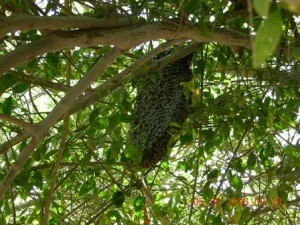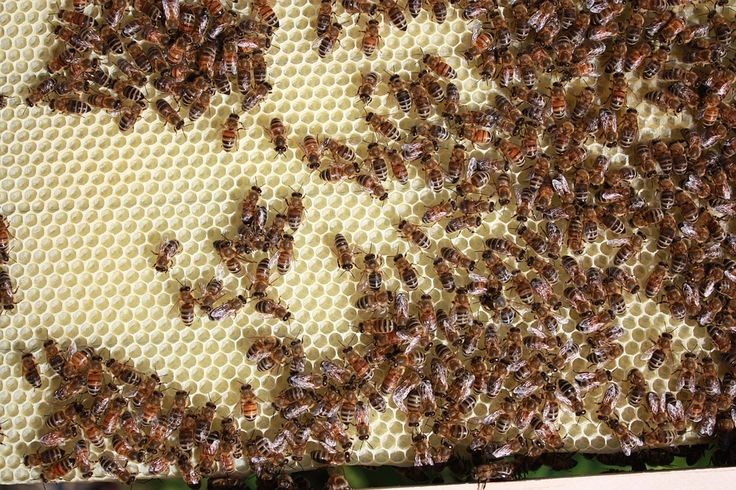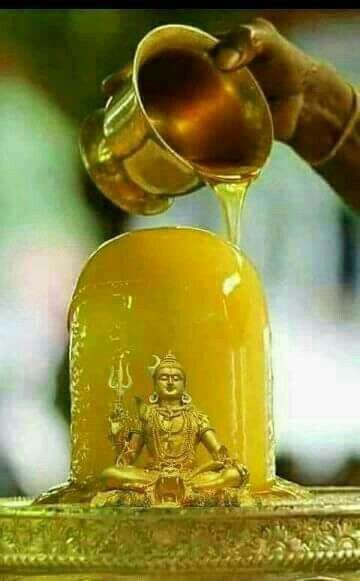Vishal the Honey Collector
This article discusses:
- Traditional honey collecting is unsustainable
- Honey is often used in religious ceremonies
- Beekeeping can alleviate rural poverty
- Beekeeping is transitioning away from traditional honey collecting practices
- Ikaki Bagh can support the beekeeping industry
Vishal and traditional honey collecting
The traditional method of collecting wild honey has existed for thousands of years in rural India.
Wild honey is distinctively different to most commercial honey available. Depending on the nectar source it can be floral, fruity, smoky, woody, spicy, nutty or earthy.
Meet Vishal, a bright-eyed teenager with an engaging smile. Vishal lives in the Village of Jhinjha, a ten-minute walk from Ikaki Bagh, the organic model farm under development on the outskirts of Jaipur.
Jhinjha Village is home to a community of Berwa and you can read more about these people at our blog ‘Ikaki Bagh, the Meena, and Berwa People’.
Vishal is the first in his family to pass the 10th grade for 16 years olds. He has acquired a working knowledge English, Hindi, Mathematics, Social Studies, Science and General Knowledge and is the first in his family to be literate.
Vishal left school at 10th grade to help with family responsibilities including tending vegetable gardens and other farming duties.
To supplement the family income, Vishal has learned to collect honey from wild bee nests to sell off locally. It is a skilled and risky, ad hoc business.
With the help of friends or family, Vishal climbs a tree hosting a wild bee hive. Wearing minimum protection, he smokes the nest using bundles of neem tree twigs. These are lit and brushed against the nest forcing most of the bees to flee.
Vishal then cuts the hive away in sections to access the richest source of honey that he collects in a bucket. The honey is then filtered through a cloth and placed in sunlight for a day or so to kill unwanted microbes before being sold.
The major problem with this traditional method of collecting wild honey is that it destroys the hives. The practice is unsustainable especially in conjunction with the drop in the honey bee population, a result of the heavy use of pesticides and fertilisers and loss of habitat.
Religious use of honey
In a religious context, honey is often used on Shiva Linga during ceremonies and to preserve the Shiva Linga.
Shiva Linga is a symbol of Lord Shiva and in traditional society, the Linga is seen as symbol of energy and the potential of Shiva himself.
In many Hindu temples, the Linga is a smooth cylindrical mass symbolising Shiva. It is found at the centre of the temple, often resting in the middle of a rimmed, disc-shaped structure.
Honey and milk are considered auspicious and nutritious and are most commonly poured over Lingas. Honey is revered for its powers to remove all sorrows and problems in life.
Lingas are generally made of stone and over time they can become brittle and crack. It is believed ‘feeding’ them with fatty or oily material helps preserve them. If properly consecrated, the Linga will also reverberate better when it remains wet.
Bee-keeping to alleviate rural poverty in rural India
A strong market for honey and associated products makes bee-keeping an attractive proposition to alleviate socio-economic disadvantage and boost economic diversity. Honey is enjoying a rise in popularity in India for its medicinal properties. The production of products made from beeswax, such as candles and food wraps, is virtually untapped.
The National Horticulture Board of India along with State Government agricultural bodies, Universities and Not-for-profit organisations have been developing training and education programs focused on establishing sustainable beekeeping operations.
Important research and academic work has also been undertaken, see: Beekeeping for Poverty Alleviation and Livelihood Security: Vol. 1: Technological Aspects of Beekeeping Ed. Rakesh Kumar Gupta, Wim Reybroeck, Johan W. van Veen, Anuradha Gupta, Springer Netherlands (2014).
Successful organic beekeeping operations have been established in Udaipur in Rajasthan and the Himalayas. Honey production has expanded significantly in many states, including Rajasthan.
Ikaki Bagh and the potential to support beekeeping
The semi-arid conditions of Rajasthan are quite suitable for beekeeping and of course bees are exceptionally important for their capacity to pollinate.
Four primary challenges must be addressed if local disadvantaged communities surrounding Ikaki Bagh are to enter this market:
- equipment costs of establishing an apiary including hives, frames, honey extractors, smoker and protective clothing, as well as purchase of nucleus bee colonies (25,000/ 30,000 rupees or $Aus490/590 or $US365/$435)
- training in the practical handling and maintenance of bees
- managing risk
- transition strategies from traditional honey collecting practices
The conversion of Ikaki Bagh in to a model organic farm includes a concentrated tree, shrub and flower planting program. The program includes planting pomegranate and mango trees to provide stronger economic returns.
The experimental program is also underway to grow chrysanthemums for the decorative and cut flower market.
These planting programs provide potential food sources for local bees, as well as the opportunity to focus on the indirect benefit of beekeeping so that it is integrated with farming and nature conservation.
The intensive program to improve irrigation and water management solutions on Ikaki Bagh also provides essential resources for bees, water.
The next steps at Ikaki Bagh to explore the possible set up of beekeeping at Ikaki Bagh are:
- building of a number of ‘bee hotels’, for solitary bees to nest
- developing Ikaki Bagh to the point where it can potentially sustain ?
- identifying a short-term training opportunity for Vishal to learn the essentials of bee-keeping
Anyone reading this blog with skills, experience and a background in beekeeping that relevant to this article and with the interest in visiting Ikaki Bagh?




Hi,
I just discovered your website and I would like to know if I can contact Vishal. I am a french beekeeper and I’m going (with my family : 2 little girls – 3,5 and 1,5 yo) to visit different countries for a year and especially India in October 2019. I would like to meet beekeepers from India in order to exchange about the way they work and share my experiences and love for bees !
For information, I’ll visit New Delhi, Udaipur, Bundi, Rathambore, Agra, Varanasi and Sunauli.
Looking forward to hearing from you,
Regards,
Hi Clement
We’ve forwarded your message to Jaideo.
Feel free to use our Content Form if you’d like to send another message.
Regards
Ikaki Bagh web admin